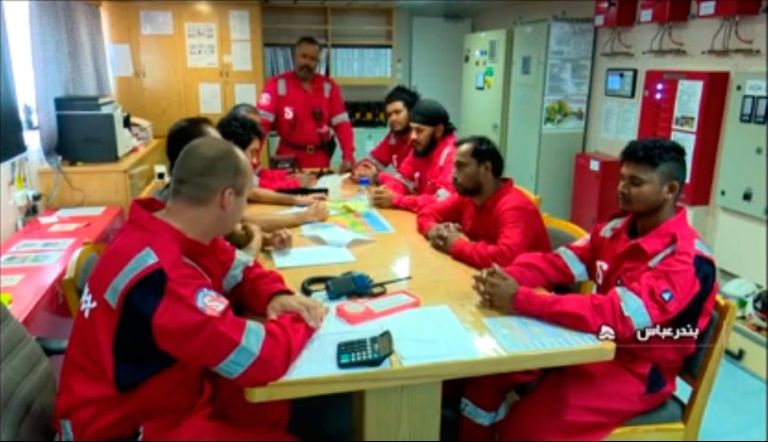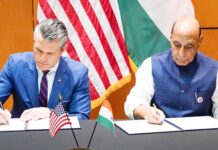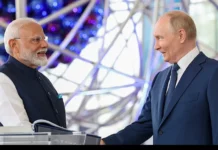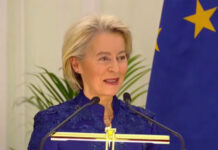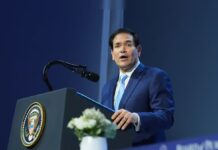TEHRAN: Iran said Tuesday it will attend an urgent meeting with countries still party to the troubled nuclear deal, as it declared itself the “guardian of security” in the Gulf amid a tanker crisis.
The planned July 28 meeting is aimed at salvaging the hard-won deal, on life-support since the United States withdrew from it last year and reimposed biting sanctions against Iran.
Amid rising hostilities with the United States, Iran’s Revolutionary Guards seized a tanker sailing under the flag of US ally Britain on Friday.
State television aired new footage of the crew aboard the Stena Impero tanker which Iran has impounded at the port of Bandar Abbas for allegedly breaking “international maritime rules”.
In the video, the crew made up of 18 Indians, three Russians, a Latvian and a Filipino are seen sitting around a table on the ship and seemingly going about their daily routines.
The seizure of the Swedish-owned vessel has been seen as a tit-for-tat move after British authorities detained an Iranian oil tanker on July 4 in the Mediterranean on suspicion it was shipping oil to Syria in breach of EU sanctions.
“Throughout history, Iran has been and will be the main guardian of security and free navigation” in the Gulf, President Hassan Rouhani said late Monday in a meeting with visiting Iraqi Prime Minister Adel Abdel Mahdi.
“There is still no adequate and lasting stability and security in the region,” he added, emphasising that Tehran was not seeking to stoke tensions.
Since the United States began reimposing sanctions on Iran, tensions have mounted with drones shot down and oil tankers mysteriously attacked in the sensitive waters of the oil-rich Gulf.
US President Donald Trump called off air strikes against Iran at the last minute in June after the Islamic republic downed a US drone.
Iran also said Monday it had arrested 17 suspects and sentenced some to death after dismantling a CIA spy network, which was dismissed by Trump as “totally false”.
The standoff has seen the price of oil spike, with Brent North Sea crude up 32 cents at USD 63.58 per barrel on Tuesday and West Texas Intermediate 23 cents higher at USD 56.45.
The nuclear deal meeting was requested by the European parties to discuss the “new situation”, Iran said, referring to its reduced nuclear commitments under the deal in response to the US withdrawal.
“It was agreed to convene an extraordinary meeting of the JCPOA joint commission in Vienna on July 28,” Iran’s foreign ministry said, using the acronym for the deal’s formal name, the Joint Comprehensive Plan of Action.
The meeting would be held at the level of deputy ministers and political directors, it said in an English-language statement.
Tehran has already given up complying with some of the deal’s limits on its nuclear programme in retaliation to the US withdrawal and what it sees as failure by remaining parties to help it circumvent sanctions.
Iran’s deputy foreign minister Abbas Araghchi has left for France to deliver a “written message” from President Rouhani to his counterpart Emmanuel Macron, the ministry’s spokesman tweeted on Tuesday, without elaborating.
Macron’s top diplomatic adviser Emmanuel Bonne visited Iran on July 9 to “piece together a deescalation” strategy and met top Iranian officials.
The landmark 2015 deal had put curbs on Iran’s nuclear programme in exchange for sanctions relief.
Yet more than a year after Trump unilaterally withdrew from it Iran said on May 8 it would disregard certain limits the deal set on its nuclear programme as it as was not receiving the accord’s economic benefits.
Iran has threatened to take further measures if the remaining parties to the deal — Britain, China, France, Germany and Russia — would not help it circumvent US sanctions, especially to sell its oil.
It has since exceeded limits the deal had set on its enriched uranium and heavy water stockpiles, as well as passing a cap the deal had imposed on its uranium enrichment.
The 4.5 per cent enrichment level it reached is well below the more than 90 percent required for a nuclear warhead.
Iran has yet to specify what further steps it may take, and has repeatedly emphasised its actions can be reversed “within hours” if European partners deliver on their commitments. (AFP)

